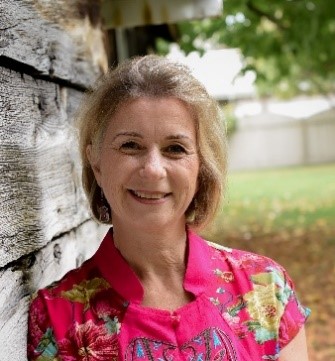Posted • Last updated
Closed
Open to Provincial Region, Volunteers across the province
Last updated
Here is an opportunity to improve communication! The University of British Columbia is inviting three additional PVN Volunteers to join the existing SAVE BC Patient Partner Committee. SAVE BC is a Study to Avoid cardio Vascular Events in BC and this committee is supporting the communication with patients throughout the implementation of this program.
Open to: Volunteers across the province
Lead Organization or Department
University of British Columbia - Study to Avoid cardioVascular Events in BCAim
The aim of this committee is to support the smooth implementation of the SAVE BC (Study to Avoid cardioVascular Events in BC) program by helping to identify an efficient and patient sensitive communication strategy. The SAVE BC Patient Partner Committee was established in February 2016. We are currently looking to increase our committee from 3 members to 5-6 members.Level of Engagement
This opportunity is at the level of collaborate on the spectrum of engagement (www.iap2.org). The promise to you is that the health care partner will look to you for advice in developing solutions and include your recommendations into the decision as much as possible.Eligibility
This opportunity is open to volunteers who:- Are over the age of 19
- Have personal history of premature atherosclerotic cardiovascular disease (age 50 or younger for men and age 55 or younger for women) OR close family members (parents, siblings or children) of those with premature cardiovascular disease
- Are willing to travel to in-person meetings in the Lower Mainland; alternatively, patients living outside of the Lower Mainland may have the opportunity to attend meetings via WebEx.
Logistics
- Vacancies: 3
- Next meeting: January, 2017 date and time TBD
- Frequency: Meetings occur quarterly
- Location: St. Paul's Hospital, Centre for Heart Lung Innovation, Vancouver, BC
- Meeting Format: Inperson facilitated discussion with tele/Videoconference option
- Length of Commitment: 1 year term with possible extension.
Reimbursement
- Parking and pre-approved mileage will be reimbursed for those traveling to attend in-person
Background
Cardiovascular disease (CVD), including heart attack and stroke, is the leading cause of death for Canadians. CVD is strongly influenced by genetic inheritance, particularly when it occurs at a young age. Expert guidelines recommend that when someone develops CVD at a young age, their first degree family members (parents, siblings and children) should be screened. Yet we know that in practice, such screening occurs infrequently. As a result, these first degree family members who are at high risk for developing CVD may not be receiving appropriate treatment to reduce their risk. In British Columbia, there is currently no structured mechanism to identify and screen these high risk family members. The following stakeholders will collaborate with the SAVE BC Patient Partner Committee as it provides input into shaping the research questions and refining the proposed methodologies for the program: -UBC Knowledge Broker and Clinical Professor, Alison Hoens, a recognized expert in KT -co-PIs Drs. Liam Brunham and Simon Pimstone, both clinician scientists with the UBC Faculty of Medicine’s Division of General Internal Medicine and medical specialists in cardiovascular prevention -Genetic counsellors, Kelsey Lynch and Amy English, who both have a strong background in research and clinical care of familial diseases Through a series of structured meetings in which the research team will present proposed methodologies and obtain feedback for revisions via facilitated discussion and participatory decision making, the SAVE BC Patient Partner Committee will provide input on the following issues:- the perceived burden and feasibility of participating in the SAVE BC study based on the proposed schedule of visits and evaluations
- perceptions of potential issues related to contacting family members and their participation in SAVE BC
- perceptions of the obligation of an index patient to inform their relatives about the presence of premature CVD
- how frequently and by what means patients wish to be contacted regarding SAVE BC
- perceptions regarding when and how to share scientific results generated during the course of the study.
Health Care Partner Contact Information
Jacquelyne Foidart
Engagement Leader, Patient and Public Engagement | Thompson Cariboo
250.879.1077
jfoidart@bcpsqc.ca

